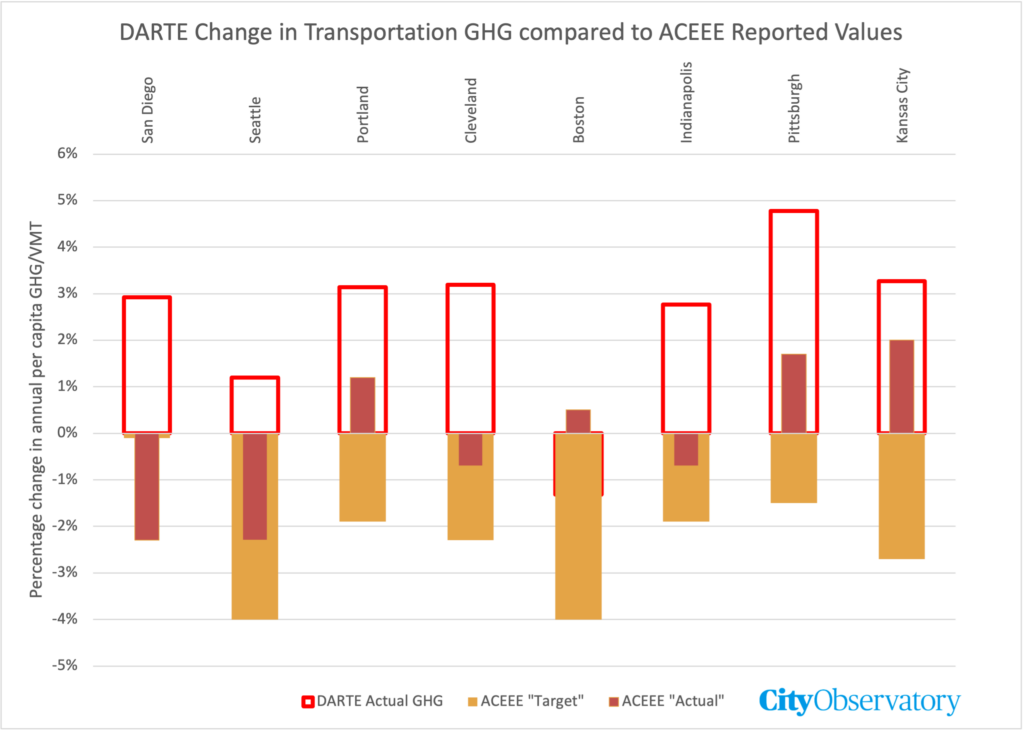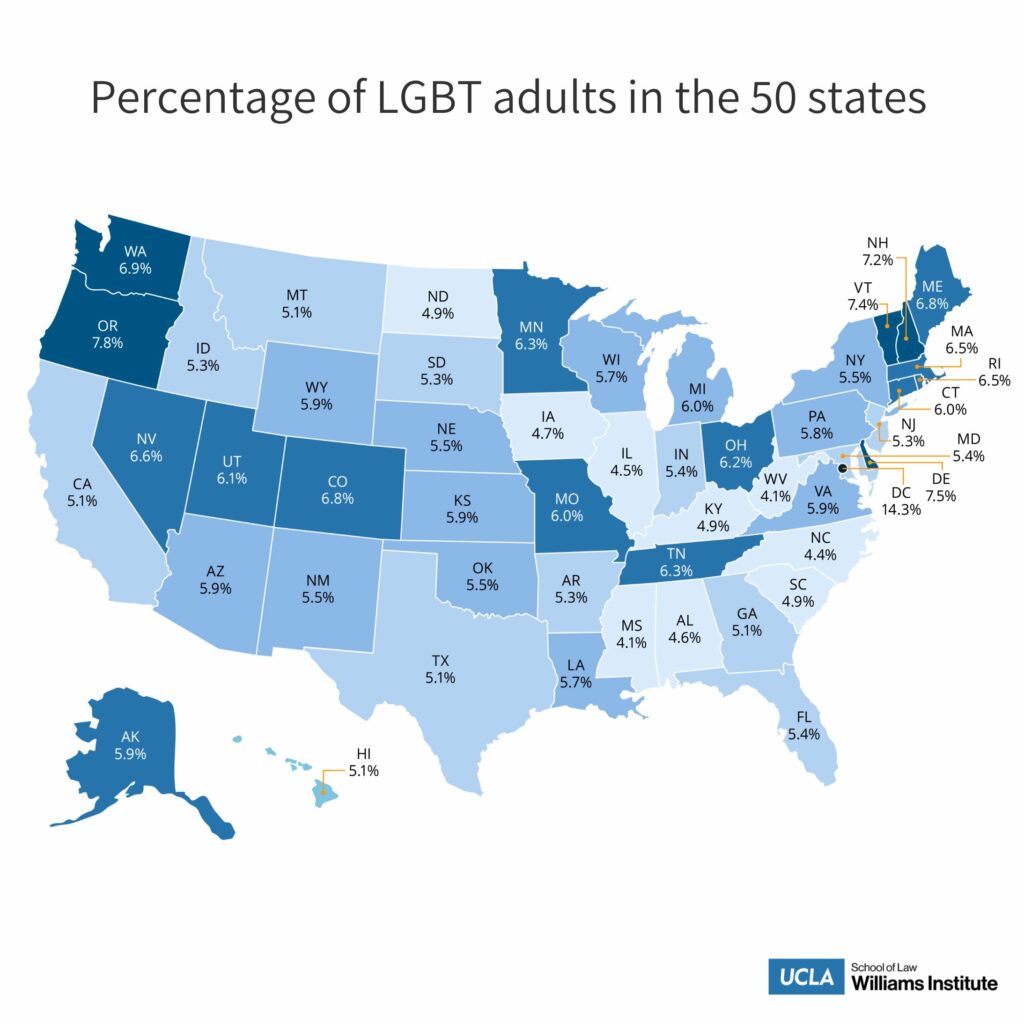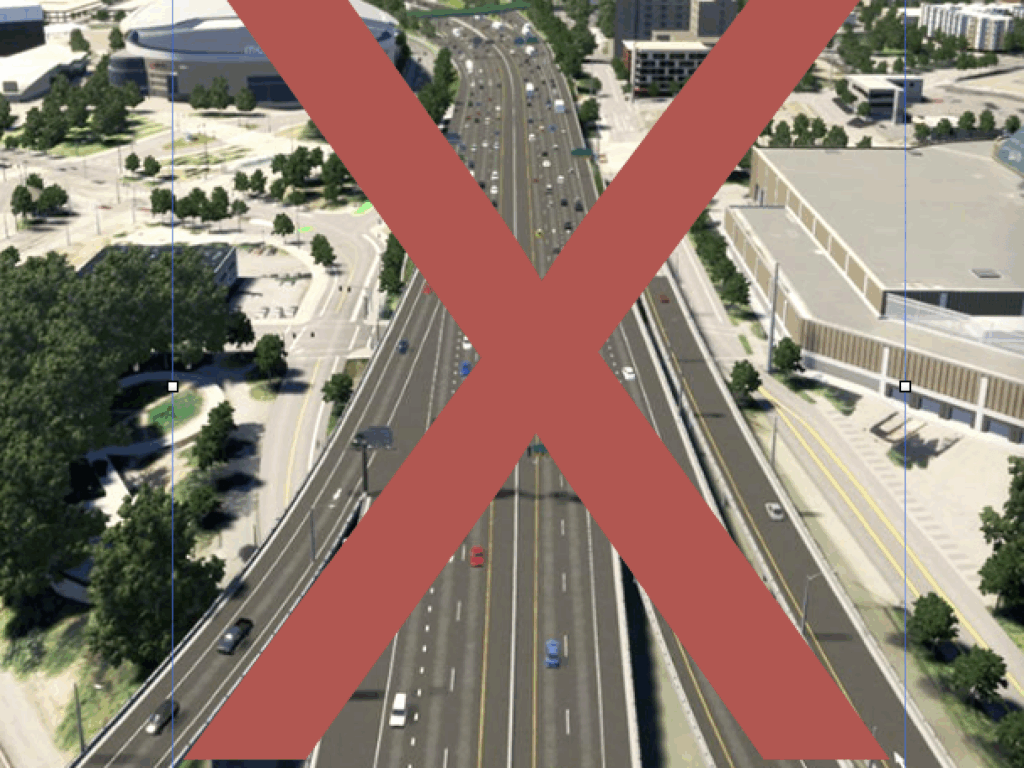What City Observatory Did This Week
We grade the city clean energy scorecard. A new scorecard tires to measure how cities are promoting energy efficiency and reducing greenhouse gases—a laudable goal. But the scorecard has some serious limitations.This scorecard emphasizes policies and process over measurable progress—only 6 of a possible 250 points are tied directly to lowering greenhouse gas emissions
Scores and rankings can help motivate action, but are only useful if they matter for reducing greenhouse gases and energy use. Relying on self-reported emissions data fails to hold cities accountable and undermines the validity of the scorecard.
This scorecard didn’t obtain independent data on city level energy use or emissionsAvailable independent data shows most cities are doing far worse in reducing transportation emissions than claimed in their scorecard reporting.City Observatory’s analysis of independent data on transportation emission trends shows that most cities dramatically overstated their progress–and rather than reducing emissions, transportation emission are increasing.
The scorecard under-emphasizes transportation, the largest and fastest growing source of GHGs, and the one most amenable to local action. To be useful, scorecard need to do more than encourage box-ticking and process improvements; they need to hold cities accountable for verifiable reductions in energy use and greenhouse gas emissions.
Must Read
Is Colorado Ending Freeway Expansion. Megan Kimble, author of City Limits, has a feature story in the New York Times highlighting Colorado’s policy of avoiding
After sustained lobbying from climate and environmental justice activists, the Transportation Commission of Colorado adopted a formal rule that makes the state transportation agency, along with Colorado’s five metropolitan planning organizations, demonstrate how new projects, including highways, reduce greenhouse gas emissions. If they don’t, they could lose funding. Within a year of the rule’s adoption in 2021, Colorado’s Department of Transportation had canceled two major highway expansions, including I-25, and shifted $100 million to transit projects.
In reality the policy is still more aspirational rather than controlling. Colorado is still expanding many of its freeways. As Kimble concedes: “The emissions rule does not prevent highway expansions, and several are still being planned. ”
Cracking down on phony carbon credits. One popular strategy for achieving “net zero” carbon emissions is for polluting firms to buy credits to offset their emissions, rather than actually reducing their emissions. The Guardian reports that an analysis by the Climate Accountability Institute shows that
. . . for 33 of the top 50 corporate buyers, more than a third of their entire offsets portfolio is “likely junk” – suggesting at least some claims about carbon neutrality and emission reductions have been exaggerated . . .
Reflecting these concerns, US Treasury Chair Janet Yellen notes that unlike conventional financial markets, the abstract and largely unverifiable nature of such credits is open to manipulation.
Unlike commodities like nickel or soybeans that may be physically delivered to the buyer for inspection and use, the emissions savings associated with a carbon credit are generally “delivered” to the atmosphere. This makes it more difficult to assess the quality of carbon credits—that is, whether they really are associated with emissions savings. In recent years, researchers and journalists have found that a number of projects have not delivered the quality or quantity of emissions savings they claimed.
Market mechanisms can be powerful tools for achieving social and environmental objectives, but so far, in the case of carbon credits, there’s been too much hucksterism and and too little transparency–we hope this will change.
New Knowledge
LGBT population by state. The Williams Institute at the UCLA School of Law has used data from the federal Governments Behaviorial Risk Factor Survey to estimate the share of the adult poupaltion that identifies as lesbian, gay, bi-sexual or transgender. Overall the report estimates that about 5.5 percent of the nation’s adult population identifies as LBGT.
The report compiles data by state, illustrating the geographic variation in gender identity.
Andrew R. Flores and Kerith J. Conron, Adult LGBT Population in the United States, Williams Institute, School of Law, UCLA, December, 2023. https://williamsinstitute.law.ucla.edu/wp-content/uploads/LGBT-Adult-US-Pop-Dec-2023.pdf



